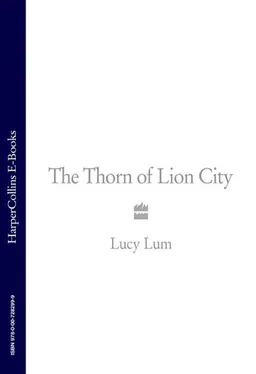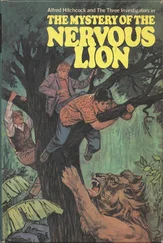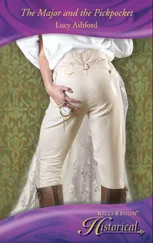The next morning, after breakfast, my mother sat for an hour in front of the huge circular mirror and put on her makeup. Miew-kin and I were fascinated by the collection of perfumes, lipsticks, nail varnishes, face creams and boxes of powder that were neatly arranged on her dressing-table, but we knew better than to touch any of Mother’s belongings. If we did she said she would burn our fingers with a lighted wick. We would stand on the threshold of her room, as though held back by an invisible barrier, and watch her transform her face. Our fingers itched to reach out and play with a lipstick or perfume bottle. Later that day my mother had her Shanghainese tailor come to the house for fittings. The Shanghainese were regarded as the finest ladies’ tailors; my mother’s hand-embroidered cheongsams were trimmed with piping and she wore them with matching shoes.
After the birth of Miew-lan my mother left Popo in charge of us. She was very strict and always had a cane by her side at mealtimes. We were constantly reminded that children ‘should not have plenty of mouth’. If my elbows rested on the dining-table or were spread too far apart while I was holding my bowl and chopsticks, she would strike them with the cane, and did the same to my sisters. When my brothers made the same mistakes, they were left alone.
Popo would fill our bowls with food and we could not leave the table until we had eaten every scrap. I preferred the Malay food of vegetables, anchovies and beans, which I was sometimes given at friends’ houses, to the oily Chinese meat. Sometimes I would look in dismay at the food in my bowl and make an excuse to leave the table without finishing, but Popo would see this as a temper tantrum and beat me.
Not long after we moved to Paterson Road, when I was seven, I started school. My grandmother would wake us early each morning and Miew-kin and I would get ready. I would put on my white blouse and Yan-fok would help me tuck in my cotton trousers, which we wrapped round my waist and tied with a sash. Then she would tie my shoelaces and I would join my family at the breakfast table. We had bowls of rice congee topped with chopped fried breadsticks or piles of steamed dumplings. After breakfast two red-painted rickshaws would arrive outside the front door. Beng would climb into one and Miew-kin and I would get into the other. The rickshaw-pullers, in Chinese jacket, short trousers and straw coolie hat, would take us to school where we would learn to read and write in English, practise arithmetic and sing songs.
Miew-kin started at the school a year before I did and I had only been there a few days when I got into trouble. At mid-morning we had tiffin, and Miew-kin always spent her break with a rich girl who was the granddaughter of one of Popo’s friends, a woman whose husband was the biggest importer of herbs in Singapore. This girl was always accompanied by a servant, who carried her metal tiffin box. Once the girl had finished eating, she would offer Miew-kin the rest of her food. When I began at the school I would sit with them during tiffin and eat some too. One morning, as we waited for the girl to finish eating, I decided I did not want to eat her leftovers. I pulled Miew-kin away and said, ‘Let’s not eat – we don’t want it.’ Then I turned to the servant and said, ‘We are not beggars. Why must we wait until she has finished? Why can’t we eat at the same time?’
When we returned home from school at lunchtime, Popo was waiting for me with her cane. The servant had told her mistress what I had said and she had stormed round to speak to Popo. ‘Why did you make trouble?’ Popo shouted at me, as I struggled in her grip. ‘Look at your sister! Now she will have no food.’
As Popo beat me I thought defiantly, I don’t want to eat that food. No matter how much you beat me I’m not going to eat like a servant!
After that Miew-kin’s friend never offered her leftover food to us again and instead we were sent to school with two cents each to spend in the ‘tuck shop’. It was a collection of stalls selling home-made cakes, vermicelli, fried noodles, mixed nuts in paper cones made out of the pages of an exercise book and, best of all, chocolate milk from England, which I loved to buy even though it cost half my tiffin allowance.
It wasn’t long before I was in trouble with Popo again. After school finished each day we would go home in a rickshaw and during the journey the rickshaw-puller would unbutton his jacket. One hot afternoon Miew-kin and I were pulling faces at the strong smell of his sweat.
‘Button your jacket!’ I yelled to him. ‘If you don’t button it, I don’t want to sit in your rickshaw.’
When we arrived at home, the rickshaw-puller complained to Popo about my behaviour and, once again, she beat me. Afterwards, just as she did every day, she welcomed Beng home from school, sat him on her lap and asked him what he had been doing. I watched as they smiled, laughed and talked in a babyish way to each other. I did not know what to think.
After school, we would do our homework on the veranda and then, in our free time, I would play with insects under the henna tree, or explore the kampung behind our house. My brothers and sisters stayed indoors. The boys liked playing in the bathroom, splashing each other and wetting the wall and floor. Miew-kin and I took care to keep away in case we were blamed for the wasted water. Our bathroom had a squat toilet at the far side and measured about seven by ten feet. In one corner, beneath the cold-water tap, an oval stoneware tub held more than a hundred gallons of water. Popo thought we would save money if the tap was left to drip continuously, day and night, so the water meter would run very slowly, if at all. Every day we each had a bath using an aluminium bowl to scoop the water and, by morning, the tub would be filled to the brim again.
One day some decorators were in the bathroom, repainting the walls and ceilings white and touching up the black skirting. In the evening, when they left, they reminded Dai-chay to keep an eye on the wet paint. Dai-chay yelled a warning to us: ‘Listen, all of you, the paint in the bathroom is still wet. You can use only the toilet. No one can bathe until tomorrow. Is that clear?’
Only my sisters and I responded, and I wondered what my brothers were up to. I found them sitting on the bathroom floor. Beng was trying to remove paint from his feet with a towel and I saw that the walls were smudged and streaked with black. ‘Beng, you’re in trouble now. Popo will surely punish you,’ I cried, imagining her striking him with her cane for the first time. But he put down the towel and then, springing to his feet, he pushed me against the smudged wall. I lost my balance, turned to brace myself against the wall and, pressing my hands on the slippery wet paint, slid to the floor. Before I could get up, he shouted, ‘Popo, come quickly! I saw her, Popo, she did it.’
My grandmother and my mother came running. I tried to tell them what had happened but they wouldn’t listen to me. Popo flew into a rage and my mother held my hair in a tight grip to stop me running to the garden. Together they dragged me into the dining room and pushed me down by the teak table. My arms were pulled round one of the legs and my wrists were tied. Holding my left hand, Popo wove a chopstick between my fingers, then did the same with the right. She put my hands together and tied the chopsticks tightly at both ends, squeezing them against my finger joints. The loose ends of the string were tied round my wrists so that any movement would increase the pressure of the chopsticks against my fingers. There was no escape. The thin rattan cane, looped at one end for a handle, slashed down on to my back, delivering the first sting. ‘Did you do it?’ Popo screamed after each lash. ‘Did you? Did you?’ The more I cried out my innocence, the harder she beat me. As I struggled, the chopsticks tightened on my fingers and the string bit into my skin. Blood streamed from the cuts in my wrists.
Читать дальше












